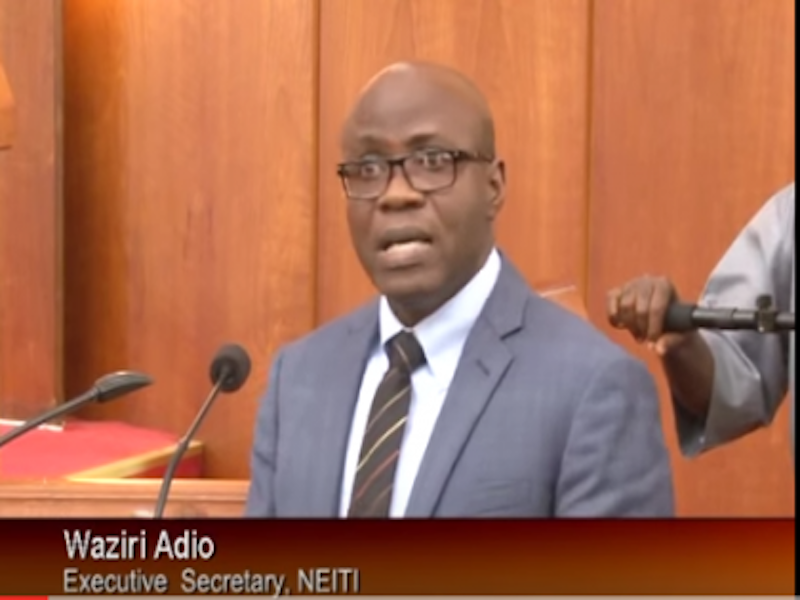A recent quarterly review by the Nigeria Extractive Industries Transparency Initiative (NEITI) has revealed that domestic debt servicing has consistently outstripped external debt servicing in recent times, especially since 2015.
“Domestic debt servicing has consistently contributed over 90 percent of total debt servicing since 2015. The Central Bank of Nigeria (CBN) in its Communique No. 114 of the Monetary Policy Committee (MPC) Meeting of July 24 and 25, 2017 indicated that credit to government has been growing while credit to the private sector has been falling, indicating the likeliness of crowding out effect on private sector investment,” the review published over the weekend noted.
The review, which is an analysis of Nigeria’s Federation Account Allocation Committee (FAAC) disbursements to the three tiers of government, indicated that in the first quarter of 2015, domestic debt servicing made up over 93 percent of total debt servicing, which did not change much by the first quarter of 2017 as domestic debt servicing was over 92 percent of total debt servicing.
The NEITI review specifically noted that in the first quarter of 2017, the total amount paid by all three tiers of government for servicing their debt was N513 billion as against total FAAC disbursements of N1.274 trillion, meaning that debt servicing took up 40.27 percent of total FAAC disbursements.
According to NEITI, the development shows that the nation’s debt in relation to revenues may be reaching a critical level.
It, however, stated that debt servicing, as a proportion of total FAAC allocations, is generally higher in the first quarter of the year, after which it falls to lower levels.
Also see: Nigerians trending electronic as instant payment platform records 67.5% of total value transacted in Q2
“Based on this, the figure of 40.27 percent observed in the first quarter of 2017 might be an upper threshold and it would thus be expected that this figure will be lower for the remaining quarters of the year,” adding that average levels of debt servicing to total FAAC disbursement ratios have been rising.
“This ratio averaged 18.63 percent in 2015 and 27.98 percent in 2016. It is thus possible that the average debt-servicing ratio to FAAC disbursements ratio could be higher in 2017,” NEITI noted.
There have been concerns that increased government borrowings, especially in the local debt market in the face of revenue shortages due largely to falling oil prices could increase debt-servicing obligations and effectively crowd out the private sector from the loans market.
However, the recent moves by the Federal Government to refinance maturing domestic debt with foreign debt have been hailed in certain quarters as welcoming.
According to Kemi Adeosun, Nigeria’s minister of finance, movement from domestic to foreign borrowing will not only free up more cash for banks to lend to the private sector, but it will also have multiplier effects on job creation in the country.
The initiative is also expected to lead to downward pressure on domestic interest rates as borrowing to the private sector would not only increase but would also become cheaper.
Another consideration was to reduce the cost of borrowing to the government, as interest rates on the international market are lower than domestic interest rates. This could lower debt servicing
The review also showed the high volatility of FAAC disbursements in the first half of 2017, with increases and decreases in successive months in the first half of the year.
“Such volatility in revenue inflows to all tiers of governments does not bode well for planning and budgeting. In addition, this review showed that debt servicing accounted for 40% of FAAC disbursements in the first half of the year,” it said.
NEITI equally indicated that from December 2016, the Federal Government has released a total of N760.18 billion in two tranches to the 36 states and FCT for refunds of Paris Club loans.
These refunds, according to NEITI, are expected to be utilized largely for the payment of workers’ salaries and pensions, thereby alleviating the challenges with workers’ welfare that states have been experiencing since late 2014.
Finally, the review showed that the NNPC completed the refund of its indebtedness of unremitted domestic crude oil sales of N450 billion to the Federation Account in April 2017, adding that a similar arrangement could be worked out for funds withheld or monies not yet paid by NNPC and its subsidiaries, especially NPDC.



